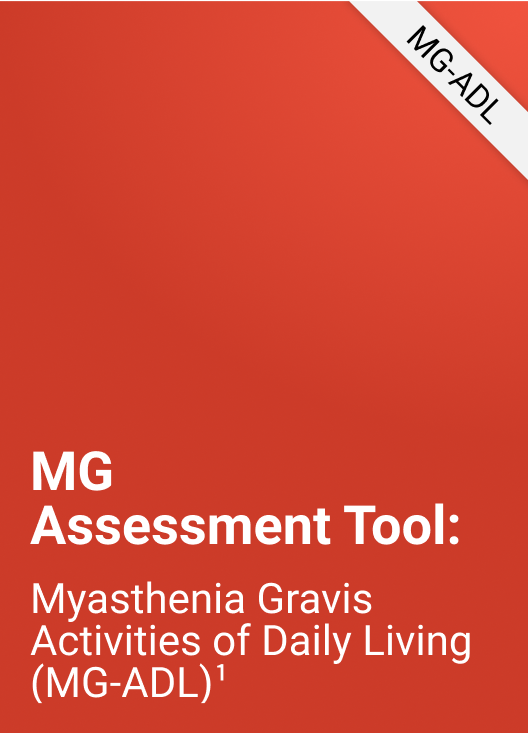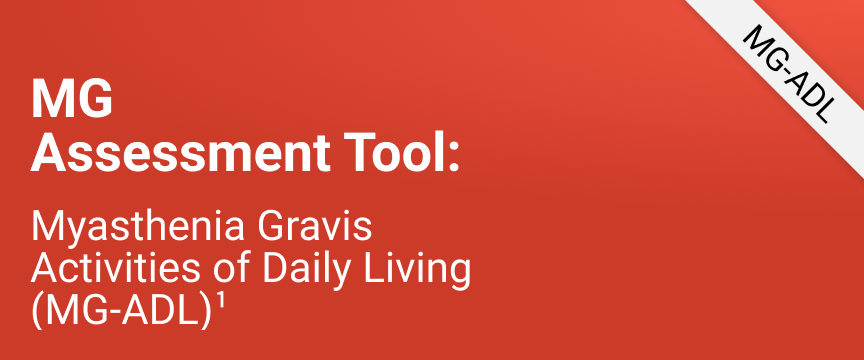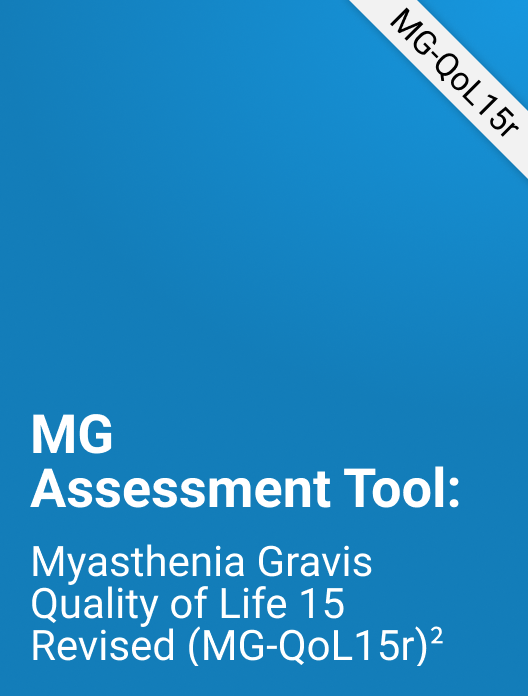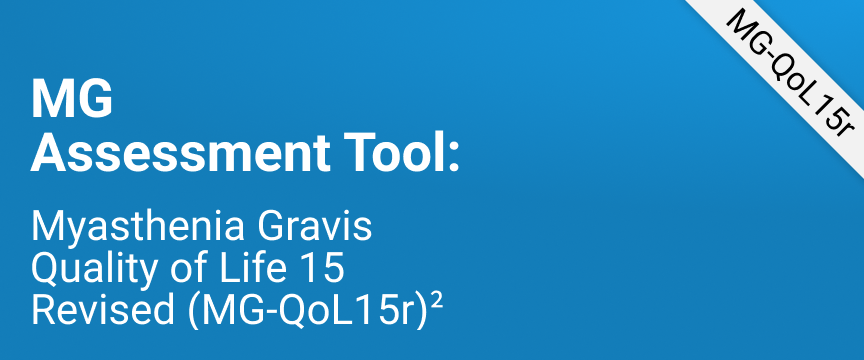WORKING WITH YOUR DOCTOR TO MANAGE YOUR MG
Myasthenia Gravis (MG) is an autoimmune disease. That means the immune system, which normally protects the body from foreign organisms, mistakenly attacks itself.
You can work with your doctor to manage your MG.
1



-
Your Myasthenia Gravis Activities of Daily Living (MG-ADL) score is a simple way for your doctor to understand your MG symptoms1
-
Go through the 8 questions one-by-one; for each, give yourself the score you most relate to
It is important to assess your symptoms periodically and share your results with your doctor to track any changes.
Complete the assessment to gain access to your own patient dashboard and shareable results.
2
TRACK YOUR
SYMPTOMS
Write down your symptoms each day, noting how they change over time and
how they affect you at home, at work, and when you’re with friends or family
| Symptoms | Impacted activities | |
|---|---|---|
| 1 |
|
|
| 2 |
|
|
| 3 |
|
|
| 4 |
|
|
| 5 |
|
|
3
TRACK YOUR
TREATMENTS
Record any side effects or symptom changes that you experience

4
ASSESS YOUR
QUALITY OF LIFE


-
Take the MG-QoL15r questionnaire to assess the impact of MG on your quality of life (QoL)2
-
Rate each of the 15 symptoms and impacts on a scale of 0 (not at all), 1 (somewhat), or 2 (very much)

5
SPEAK WITH
YOUR DOCTOR
-
Share your MG-ADL and/or MG-QoL15r scores with your doctor
-
Discuss all the ways in which MG impacts your daily life and activities
-
Discuss how you cope with your symptoms
-
Share any emotional burdens that you experience as a result of your MG
Working together, you and your doctor can evaluate your symptoms and management options.
References:
-
Wolfe GI, et al. Neurology. 1999;52(7):1487-1489.
-
Burns TM, et al. Muscle Nerve. 2016;54(6):1015-1022.
